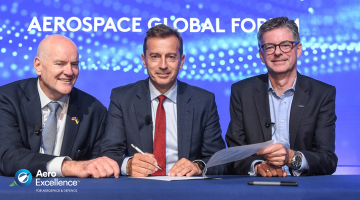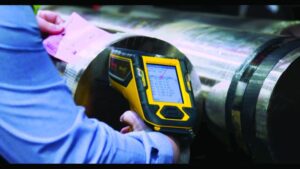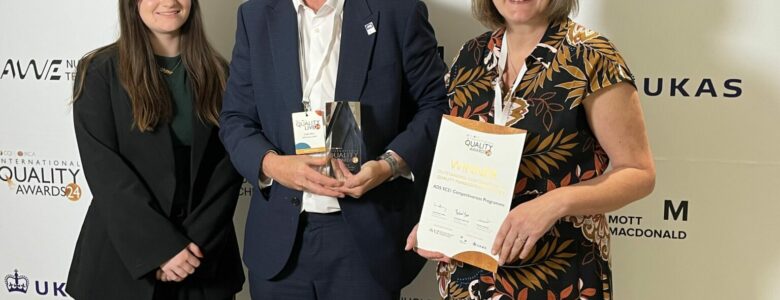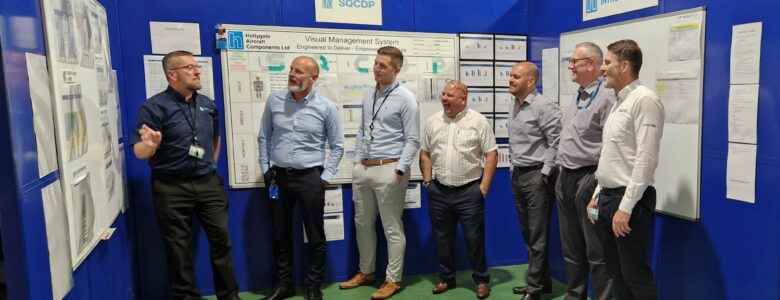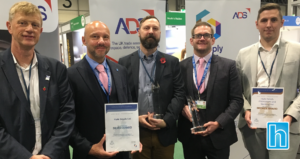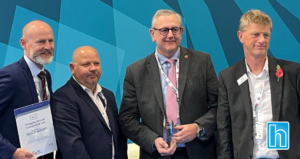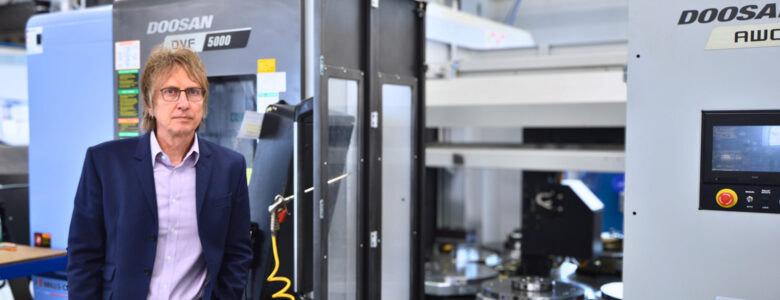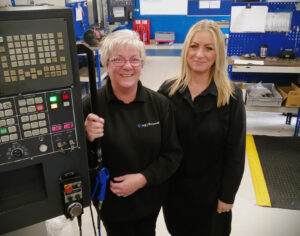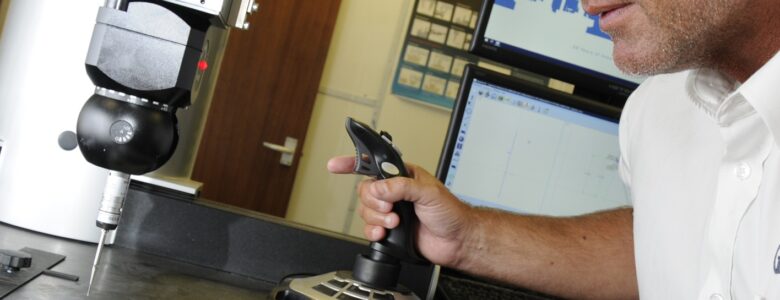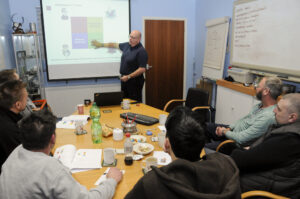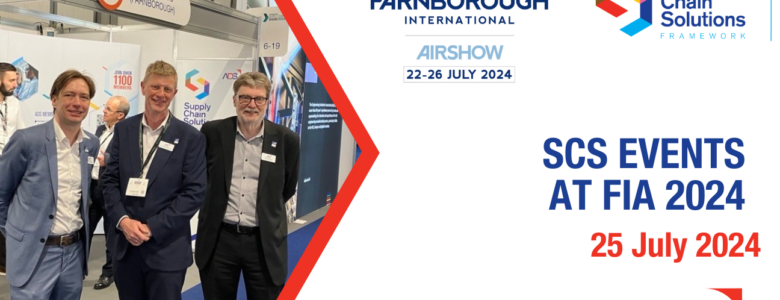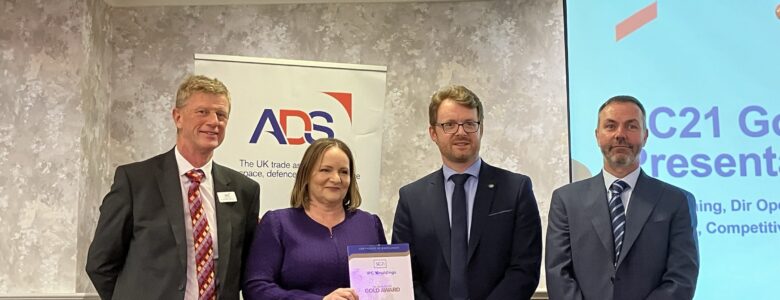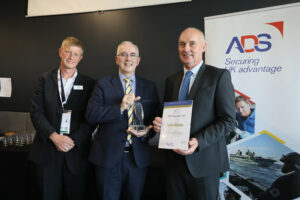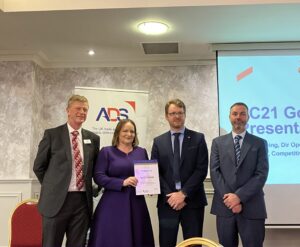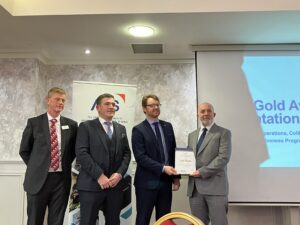- The UK, French and German aerospace and defence trade associations are partnering to develop Aero Excellence™ International.
- The initiative will be a dynamic, resilient approach to supply chain improvement across international borders.
- Aero Excellence International™ is designed to streamline evaluations and increase productivity – strengthening supply chains and supporting the aerospace industry’s ramp-up.
Farnborough International Airshow (23 July 2024) – The UK, France and Germany today jointly announced Aero Excellence™ International. The initiative is designed to improve supply chain resilience through a new and universal standard of operational excellence for the aerospace and defence community.
Fortifying their commitment to best-in-class supply chain improvements, Aero Excellence™ International is created by the leading national trade associations in Europe: ADS, which represents 1300 organisations in the UK; GIFAS, which represents over 480 organisations in France; and BDLI, which represents over 260 in Germany.
The Aero Excellence™ programme was launched in June 2023 at Paris Air Show by GIFAS. Its expansion into the UK and Germany, through a partnership with ADS and BDLI respectively, will create Aero Excellence™ International. The joint association will remain open to further partners.
Aero Excellence™ International promises to be a standardised assessment of supply capability, improving the entire supply chain across borders. Operational Excellence, Environment, and Cyber Security are assessed with a progression from Bronze, Silver towards Gold status, thus fostering transparency, comparability and quality.
Guillaume Faury, GIFAS Chairman and CEO of Airbus, said:
“Aero Excellence™ International is designed to strengthen the operational, environmental and cyber excellence of our industries in order to meet future challenges and improve competitiveness. The aim is to establish a universal maturity benchmark recognised by the aeronautics, space and defence community.
“Aero Excellence™ has been operational in France since January 2024. It is now time for its internationalization. Aero Excellence™ International, launched jointly with ADS and BDLI, is open to other countries. Let’s make it a European standard that could be adopted worldwide!”
David Lockwood, ADS President and CEO of Babcock International Group said:
“I am delighted that Aero Excellence™ will be coming to the UK. A united set of standards that has the support of both customers and suppliers in multiple countries will turbocharge efficiency and support supplier improvement activities for our businesses.
“Efficient and robust businesses across the supply chain will allow both customers and suppliers in the UK aerospace and defence sectors to thrive, while also becoming increasingly competitive in the global marketplace.
“The value of effective, efficient collaboration and trade between the industrial bases of the UK and its allies in this uncertain geopolitical environment also cannot be ignored. This programme is a vital part of expanding that collaboration.
“As we look to the future and navigate an increasingly complex global landscape, our partnership with GIFAS and BDLI will be instrumental in this journey, providing SMEs with the tools and insights to prosper.”
Dr. Michael Schoellhorn, BDLI President and CEO of Airbus Defence and Space said:
“We welcome Aero Excellence™ International as a promising contribution to the stabilisation of the supply chain. This is of particular importance at a time when our industry tackles the challenge of the ramp-up amidst increasing geostrategic risks. Initial trial runs of Aero Excellence™ in Germany give us confidence that the needs of all our businesses, including small and medium-sized enterprises, will be met and that we can establish a reliable, efficient, and universally accepted standard – while maintaining a balanced distribution of the costs. Given the spirit of collaboration among our three associations, Aero Excellence™ International has the potential to shape not just European but global supply chains for the better.”
Media Contacts:
ADS Group
- Freya Lewis
- Head of External Communications
- Comms@adsgroup.org.uk
- +44 7880 190 529
BDLI
- Dr Patrick Keller
- Head of Communications
- +49 3020614014
- pressestelle@bdli.de
GIFAS
- Christophe Robin
- Communications Director
- +33 (0)1 44 43 17 50
- +33 (0)6 07 51 86 23
- christophe.robin@gifas.fr

